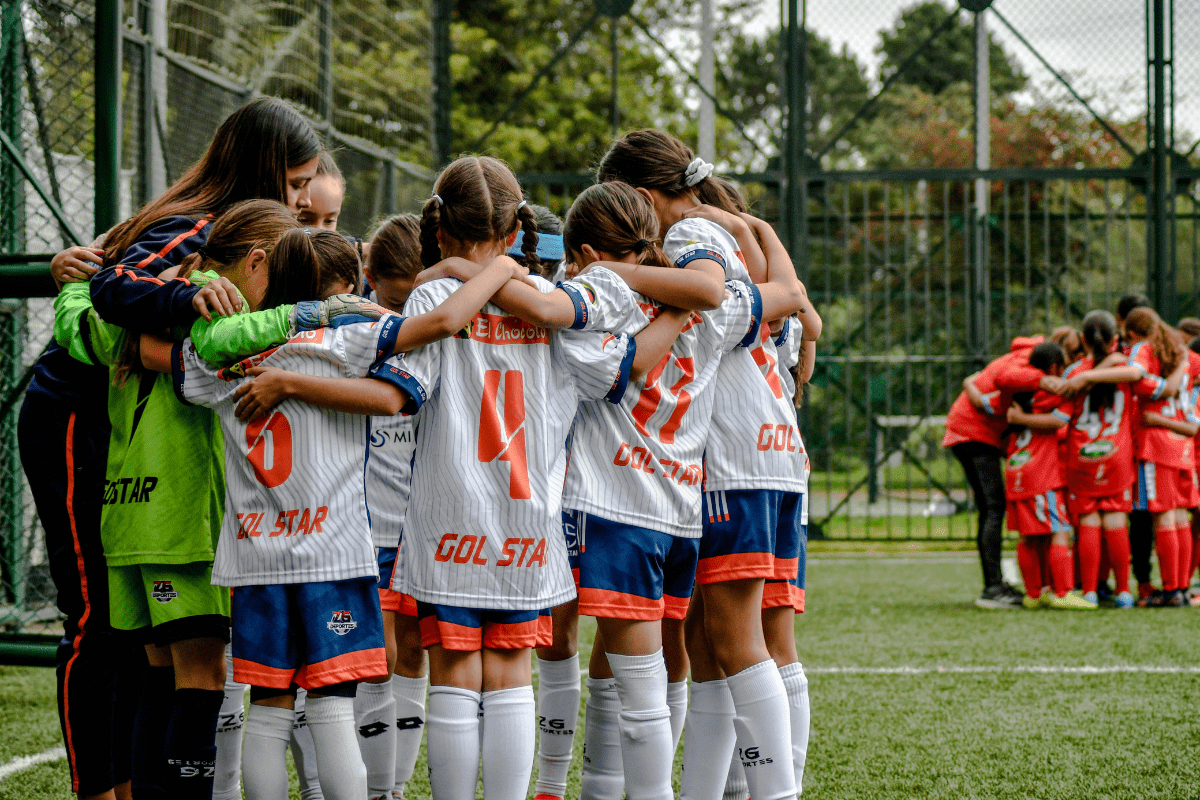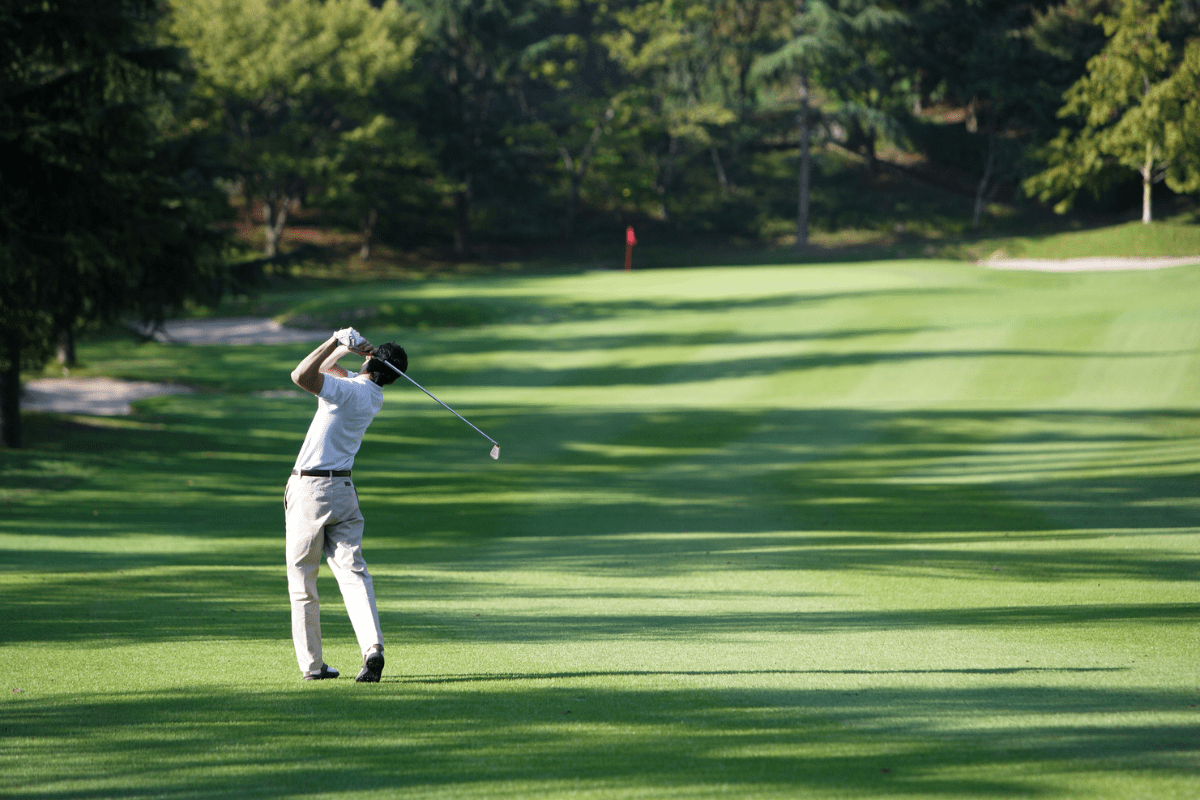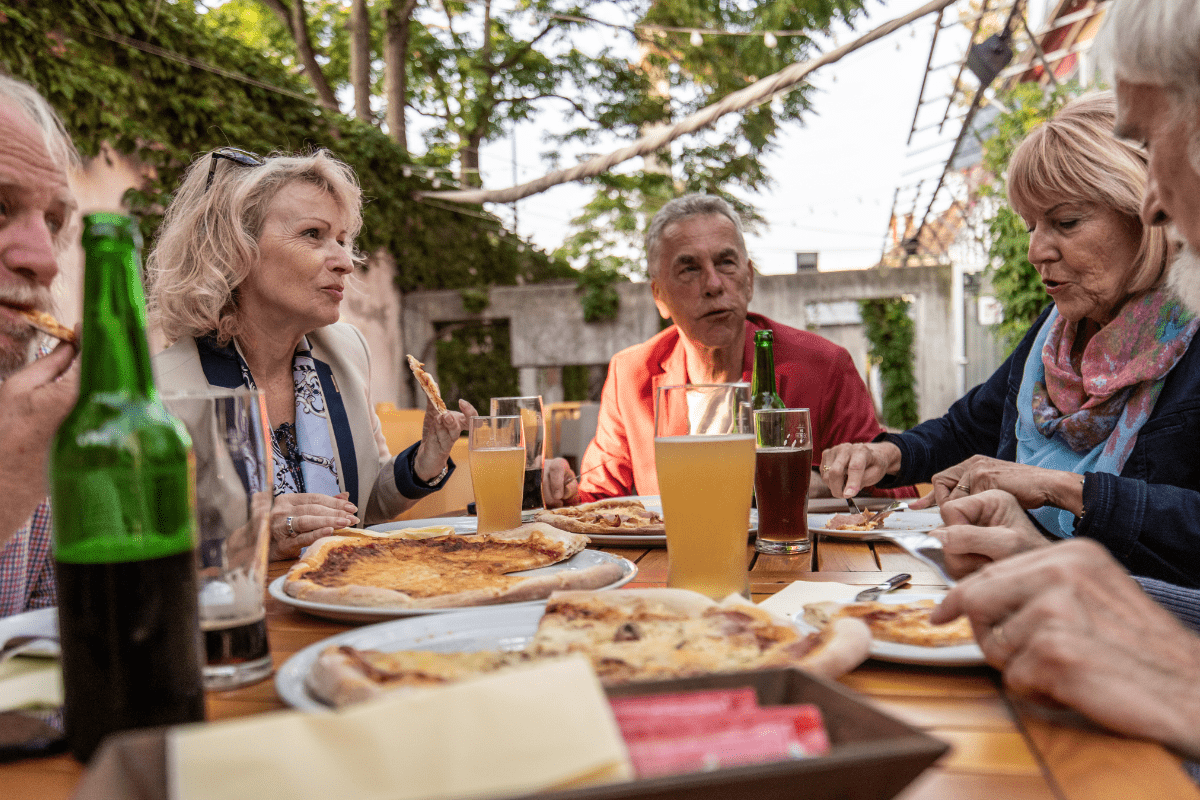Getting your kid signed up for activities in Omaha shouldn't require a PhD in logistics, but between the 250+ parks, random registration deadlines, and mysterious "equipment fees," it can feel that way. Whether you're trying to find the perfect soccer league for your kindergartener or desperately seeking something—anything—that will get your teenager away from their phone, this guide breaks down everything you need to know about Omaha's youth sports and activities scene.
Let's talk money first (because someone has to)
Nobody likes surprises when it comes to costs, especially the kind that pop up after you've already promised your kid they can play travel hockey. The good news is Omaha offers programs ranging from basically free to "maybe we should take out a second mortgage."
The price spectrum looks like this
At the budget-friendly end, YMCA sports programs run $50-75 per season, which is basically the cost of one family dinner at a decent restaurant. City recreation programs through Omaha Parks and Rec hover in similar territory. Moving up the ladder, Sporting Nebraska FC charges $85-165 per season for recreational soccer, depending on your kid's age.
Then there's the competitive tier. If your child shows serious talent (or serious determination), prepare for bigger numbers. Select soccer teams can run up to $1,800 annually for premier girls' teams. That's before you factor in tournament fees, travel costs, and the inevitable team bonding dinners at Runza.
The sneaky part? Hidden costs. That $50 basketball league suddenly needs $30 for a reversible jersey, $15 for shorts that match exactly (because apparently regular black shorts won't do), plus tournament fees that mysteriously appear mid-season. One parent told me they spent more on their daughter's dance competition makeup than the actual class fees—though I'm pretty sure that was hyperbole. Pretty sure.
Financial assistance (aka your new best friend)
Here's where Omaha really shines—nearly every major organization offers financial help, and they actually want you to use it. The YMCA's financial assistance program is refreshingly straightforward. You'll need your most recent tax return and one month of income proof. They typically respond within 7-10 days, and their sliding scale adjusts based on household size.
Even better? You can volunteer to earn additional assistance. One single mom I know covers her kids' swim lessons by helping with the Y's youth basketball scorekeeping. It's like a barter system that actually works.
The Boys & Girls Clubs take it further—90% of their members receive reduced fees or full scholarships. That's not a typo. Their South Omaha location even offers completely free membership at certain sites like Skinner Elementary.
For city programs, the Omaha Parks Foundation provides scholarships, and families qualifying for free or reduced lunch automatically get 50% off. No lengthy applications, no judgment—just accessible programming for kids who need it.
Equipment on a budget
Before you max out your credit card at Dick's Sporting Goods, check out Play It Again Sports at 8453 W Center Road. They buy and sell used equipment, offering 30% more in store credit than cash. That barely-used soccer cleat your kid outgrew in three months? Someone else's treasure.
For new gear, SCHEELS at Village Pointe has everything under one massive roof, while Dick's at Westroads offers services like free bike assembly. Pro tip: many programs provide basic equipment or include it in registration fees, especially for younger kids. Ask before you buy.
The big players in Omaha youth activities
Understanding who runs what helps navigate this maze of options. Three organizations dominate the landscape, each with its own personality and perks.
YMCA of Greater Omaha
The Y remains the 800-pound gorilla of affordable youth programming. With 12 locations scattered across the metro (though Butler-Gast is closed until 2027 for construction), they offer something for everyone. Beyond the obvious sports leagues, membership includes perks many families overlook—free childcare while parents work out, 570+ weekly group exercise classes, and open gym time when your kid just needs to burn energy on a rainy Saturday.
Their sports calendar follows a predictable rhythm. Basketball runs January 18 through March 1, while soccer and flag football operate on fall and spring schedules. Early bird registration from August 18 to September 2 saves $10 per child—mark your calendar now or set seventeen phone reminders like I do.
Boys & Girls Clubs of the Midlands
Serving 5,800 youth annually, the Boys & Girls Clubs fill the critical after-school gap. Their Carl & Joyce Mammel South Omaha Club at 5051 South 22nd Street feels more like a youth resort with its indoor pool and expansive sports fields.
The BE GREAT ACADEMY runs 15+ programs weekly, from homework help to hip-hop dance. For teenagers, their CareerLaunch program connects kids with real job experiences—way more useful than another season of recreational volleyball.
Annual membership costs just $30, though as mentioned, most families pay nothing. Call them at 402-558-2231 to get started. Fair warning: their website looks like it hasn't been updated since 2010, but don't let that deter you. The programs are solid.
City of Omaha Parks and Recreation
The city runs extensive programming through 15 community centers, with big changes coming. Tranquility Park's $54 million renovation will create 13-16 synthetic turf fields by 2027, positioning Omaha to host major regional tournaments. Translation: your kid might play on the same field as future college athletes.
Their summer day camps like Camp Zorinsky provide full-day supervision and activities—a working parent's salvation. The Junior Golf Club offers free golf for ages 8-14 at city courses Monday through Friday. Yes, free. Not "free with purchase" or "free trial"—actually free.
Breaking down sports by type
Every sport has its own ecosystem in Omaha, with varying levels of intensity, cost, and time commitment. Here's what you need to know about the major players.
Soccer reigns supreme
Soccer dominates the youth sports landscape, probably because it requires minimal equipment and maximum energy expenditure. Sporting Nebraska FC leads the pack, offering programs from U4 (that's 4-year-olds attempting to kick balls in vaguely the right direction) through U19. Their affiliation with Major League Soccer's Sporting KC creates a legitimate pathway for serious players.
Costs range from $85 for the littlest kickers to $165 for older recreational players. Competitive teams jump significantly higher—we're talking $900+ for academy teams. They train at premier facilities like the CHI Health MultiSport Complex, which sounds fancy because it is.
For a more casual approach, YMCA soccer runs $50-75 per season. Games happen on Saturdays, practices once a week, and nobody keeps score until age 8 (though the kids definitely know who's winning).
Baseball and softball traditions
Elkhorn Athletic Association operates from their complex at 1402 N. 203rd Street, running programs from tee-ball through age 14. Their NEBRASKA PRIME teams play 50-60 games per season—basically a part-time job for both players and parents. FUTURES Baseball offers the recreational option for kids who like baseball but also enjoy having a summer.
The West Omaha Baseball Foundation fields at 84th and I-80 host multiple leagues, including the long-running Westgate-Westside Athletic Association. These programs blend tradition with modern facilities, though some parents joke the registration process hasn't changed since 1962.
Basketball's bright future
Basketball in Omaha is about to explode. The new Levi Carter Park Activity and Sports Complex opens Fall 2026 with 10 indoor courts—Omaha's largest basketball facility. Until then, programs scatter across various gyms and schools.
The Jewish Community Center's Little Lions program introduces K-2nd graders to basketball fundamentals without the pressure. Catholic Youth Organization basketball involves 220 teams and 1,800 players, and you don't need to be Catholic to participate—they dropped that requirement years ago.
For serious players, AAU teams through organizations like Omaha Sports Academy offer year-round training and tournament play. Budget accordingly—these programs assume basketball is life.
Swimming options
The Greater Omaha Swim League coordinates summer swim meets at private pools across the metro from June through July. It's as much a social experience as athletic—think poolside potlucks and parent volunteers timing races with varying degrees of accuracy.
Year-round swimming happens primarily through the YMCA, with programs ranging from parent-tot classes to competitive teams. City pools offer lessons in summer, though spots fill fast. Register in March for June lessons, or prepare for the waitlist shuffle.
Beyond traditional sports
Not every kid dreams of soccer scholarships. Omaha's arts and enrichment scene offers creative alternatives that might better match your child's interests—or at least get them off TikTok for a few hours.
Performing arts take center stage
Rose Theater's Studios for Youth Artists charges $70 monthly for classes ranging from Disney-themed musical theater to serious voice training. Their Spring Dance Concert on May 15-16, 2025, gives kids a professional theater experience without the professional theater attitude.
Nebraska Dance operates three locations offering everything from toddler tumbling to pre-professional ballet. Most programs run $70 monthly—about what you'd spend on coffee if you're a two-latte-a-day person. They start kids at 18 months, which seems ambitious until you see a room full of toddlers actually following dance instructions (sort of).
Martial arts builds more than muscles
The martial arts scene in Omaha ranges from strip mall dojos to serious training facilities. Premier Martial Arts offers multiple disciplines including Brazilian jiu-jitsu and kickboxing, currently running a buy-one-get-one month promotion through September 2025.
Omaha Blue Waves focuses on traditional Taekwon-Do with family classes on Tuesday and Thursday evenings. Meanwhile, Narrow Path Martial Arts at 18101 R. Plaza integrates faith-based values into their Brazilian jiu-jitsu program—think character development with choke holds.
Music education hits the right notes
The Omaha Conservatory of Music at 7023 Cass Street serves 800+ students with 35+ faculty members. Their String Sprouts program introduces 3-6 year olds to violin and cello using a sliding fee scale. Because nothing says "parental dedication" like listening to a 4-year-old practice violin.
School of Rock Omaha takes a different approach—kids learn by playing in actual bands and performing at local venues. It's louder than traditional lessons but arguably more fun. Your neighbors' opinions may vary.
STEM programs for future innovators
Henry Doorly Zoo's education programs go way beyond field trips. Their Zoo Academy accepts 120 middle and high school students annually for legitimate research experiences. Applications are due November 1st, and yes, it's competitive—think science fair winners and kids who voluntarily read biology textbooks.
Code Ninjas and iCode teach programming through game development, because apparently kids will learn anything if it involves Minecraft. For hardware enthusiasts, VEX Robotics and FIRST Robotics teams compete regionally and nationally. Fair warning: robotics parents are intense. You've been warned.
Special needs programs that actually work
Omaha excels at adaptive programming, ensuring every child can participate regardless of ability. These aren't afterthoughts—they're thoughtfully designed programs with trained staff and genuine community support.
Special Olympics Nebraska leads the way
Operating from 14216 Dayton Circle, Special Olympics Nebraska offers 20 Olympic-style sports completely free to athletes 8 and older with intellectual disabilities. With 500+ annual training and competition opportunities, they're busy year-round. Their Unified Sports programs mix athletes with and without disabilities as equal teammates—it's inclusion done right.
HETRA provides equine therapy
Heartland Equine Therapeutic Riding Academy in Gretna offers horseback riding as therapy. The organization subsidizes 70% of costs, ensuring money never prevents participation. Watching a child with mobility challenges confidently control a 1,000-pound horse? That's perspective-shifting stuff.
YMCA goes adaptive
The Y's adaptive swim lessons show what's possible with proper planning. Designed with occupational therapist input, classes limit enrollment to three participants for true individualized attention. They also offer adaptive sports leagues and inclusive summer camps.
City programs embrace all abilities
Omaha Parks and Rec runs free adaptive tennis and sitting volleyball at various community centers. Tuesday evenings at Mockingbird Hills Community Center feature sitting volleyball that's surprisingly competitive and definitely entertaining.
Munroe-Meyer Institute offers adaptive sports for ages 8-21 with developmental disabilities. Their six-week sessions in spring and fall cover volleyball, basketball, football, soccer, and floor hockey. We Rock the Spectrum in La Vista provides sensory-friendly gym equipment designed for all abilities—think indoor playgrounds engineered by occupational therapists.
Choosing age-appropriate activities
Picking the right activity at the right age matters more than most parents realize. Push too hard too early, and you'll burn out a potential athlete. Wait too long for specialized training, and they might fall behind peers. Here's what the experts recommend.
Ages 3-6: Keep it simple
Focus on basic movement skills in short sessions. The YMCA, Jewish Community Center, and Little Sports Omaha excel at age-appropriate programming. Classes should last 30-45 minutes max—about the attention span of a goldfish, which coincidentally matches most preschoolers.
Activities at this age should emphasize fun over fundamentals. If your 4-year-old spends soccer practice picking dandelions, that's developmentally normal. They're learning to follow instructions, interact with peers, and occasionally kick a ball. Victory.
Ages 7-11: Sample everything
Research consistently shows kids benefit from playing multiple sports during elementary school. This develops overall athleticism while preventing overuse injuries and burnout. Plus, your kid might discover they hate soccer but love swimming.
This is prime time for recreational leagues through the Y, city programs, or organizations like CYO basketball. Keep it fun, rotate seasons, and resist the urge to specialize—no matter what that intense coach promises about college scholarships.
Ages 12+: Time to get serious (maybe)
Once kids hit middle school, sport-specific training becomes appropriate as tactical understanding develops. This is when travel teams, competitive leagues, and year-round training make sense—if your kid wants it.
Dr. Kody Moffatt at Children's Nebraska Sports Medicine emphasizes the difference between soreness and pain. Sore muscles after practice? Normal. Sharp pain that persists? Time to call 402-955-PLAY for a same-day appointment. Don't let kids play through pain—teenage bravado isn't worth permanent injury.
Solving the transportation puzzle
Getting kids to practice remains one of parenting's greatest logistical challenges. Omaha offers several solutions beyond the traditional "mom's taxi service" model.
Metro's K-12 Rides Free program provides unlimited bus access during school hours. Omaha Public Schools offers activity buses for students staying after school, though routes are limited. Some districts partner with Zum Services for tech-enabled transportation—think Uber for kids but with background checks and real-time tracking.
For families, apps like GoKid Carpool and PiggyBack Network facilitate ride-sharing with built-in safety features. They match families with similar schedules and destinations, complete with GPS tracking and parent verification. It's the modern village approach to child-rearing.
Success stories worth celebrating
Omaha youth sports produce real results. Elkhorn North's Ryan Harrahill signed with Nebraska baseball. Grace Heaney joined Purdue volleyball. Shaquil Barrett progressed from Boys Town athletics to NFL success with the Tampa Bay Buccaneers.
But success isn't always about scholarships. Parents consistently report improved confidence, better grades, and stronger friendships as the real victories. One mom told me her shy daughter became class president after two years of debate team. Another credits youth theater with helping her son overcome a speech impediment. These programs change lives in ways that don't show up in win-loss records.
Future developments to watch
Omaha continues investing in youth sports infrastructure. Tranquility Park's renovation will create premier tournament facilities by 2027. The Levi Carter basketball complex promises to transform indoor sports opportunities. These aren't just facilities—they're investments in the next generation.
The trend toward inclusive programming continues expanding. More organizations offer adaptive sports, sliding scale fees, and transportation solutions. Barriers that once prevented participation slowly crumble as the community recognizes youth activities as essential, not optional.
Your next steps
Ready to get started? Here's your action plan:
First, assess your budget honestly, including hidden costs. Apply for financial assistance if needed—there's no shame in accepting help to give your kid opportunities. Visit the YMCA Welcome Center to discuss options, or call Boys & Girls Clubs at 402-558-2231.
Second, consider your child's interests and developmental stage. Start with recreational programs before committing to competitive teams. Let them try multiple activities—season passes aren't marriage contracts.
Finally, mark your calendar for registration deadlines. Most fall programs open registration in August, and popular options fill fast. Set reminders, bookmark registration pages, and have backup options ready.
Omaha's youth activity landscape offers something for everyone, from future Olympians to kids who just need positive after-school engagement. The infrastructure exists, financial help is available, and the community supports youth development. All that's missing is your kid's participation.
Now if you'll excuse me, I need to figure out how to be in three places simultaneously for Saturday morning games. If anyone invents teleportation, patent it immediately—youth sports parents will make you rich.





